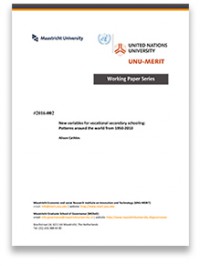From ‘Destructive Creation’ to ‘Creative Destruction’: Rethinking Science, Technology and innovation in a Global Context

There is general agreement amongst economists today that Science, Technology and Innovation (STI)2 have dramatically contributed to individual countries’ economic growth and welfare. Another, 21st Century way of looking at the old Solow residual discussion is to observe that STI has been the core factor behind the intrinsic characteristic of capitalism to accumulate indefinitely. Doing so STI has also created the seeds of the current pattern of unsustainable global development. Once the major driving forces of countries’ international, technological competitiveness are taken into account, “smart”, innovation‐led growth and “sustainable”, green growth appear in contradiction with each other. The paper makes the case for “smart” no longer be leading in STI policy but rather “sustainability”. Four priority “directions” are suggested: radical improvements in eco‐productivity reducing the energy and emissions intensity of production, distribution and consumption; biomimicry as sustainable product innovation guiding principle; the use of AI and big data as “sustainable purpose technologies” assisting and complementing growth in eco‐productivity and green product development and design; and finally regulatory and taxing policies addressing over‐consumption, including advertising. In so far as sustainability and inclusiveness are also in contradiction with each other, there is also need for specific proactive, integrated “eco‐social” STI policies. Global sustainable development will only be successful if it supported by all classes in society. While for high income classes priority can be given to increased taxation, for low income classes there is a need for a more comprehensive green new deal that should include house retrofitting and social energy tariffs making the energy transition cheap. Finally the research community itself should put full priority to exploit fully the digital substitution advantages of research networking, rather than air travel.
